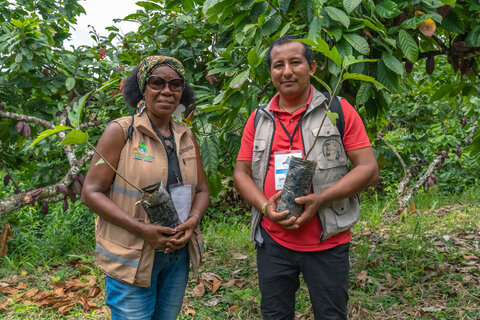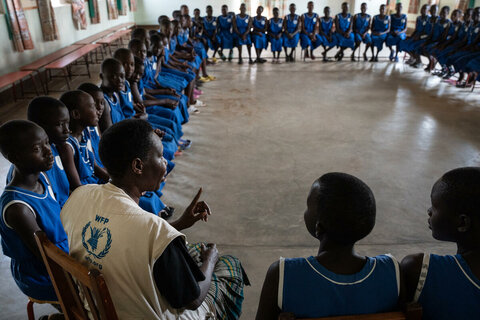Hunger, coronavirus and the way ahead for Latin America

"I refused for a long time," says Jenny Pearce, a political scientist at the London School of Economics specialising in Latin America, when I ask if she's ever watched the Netflix series Narcos.
One weekend at a friend's house in Mexico, with little to do one evening but watch TV, however, and the peace scholar — an expert on ‘violences' in the region — bit the bullet.
"I have to say, I thought it was pretty well done," she says, "though there were some issues — the things it didn't show".
Teachers in Honduras get on their bikes to deliver school meals
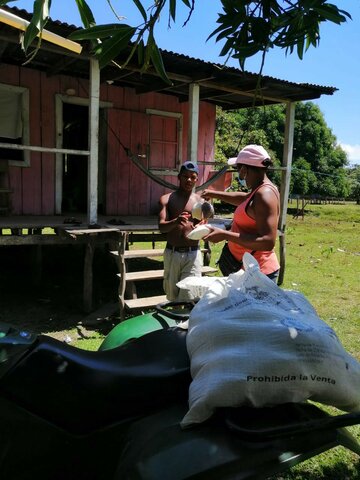
She possibly means the plight of people like the friends she faced bombs alongside decades ago in the small town of Arcatao, in Chatalatenango, El Salvador, "illiterate peasants still digging up the remains of people massacred during the war in the early 1980s … digging up the bodies of their parents, tortured to death by the army" — in recent years those survivors have set up the Museum of Historical Memory there.
We're on a Skype call — lockdown in Hebden Bridge, West Yorkshire, England, is a relative breeze.
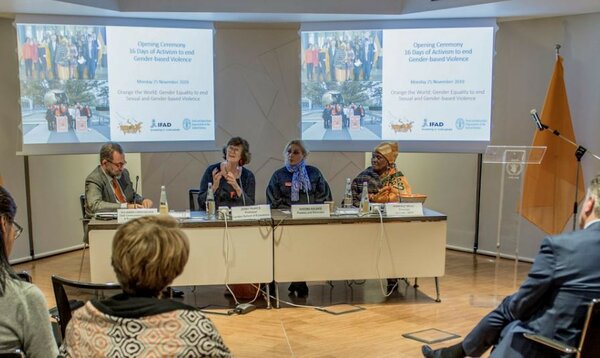
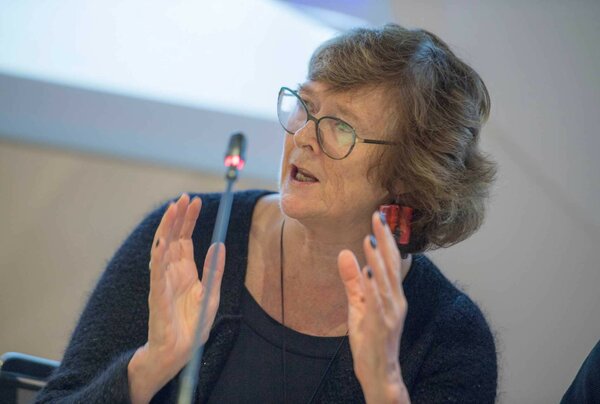
"I'm overlooking a hillside and there's a chimney from the old textile mills," she says, as she settles into the interview to mark the International Day of Living Together in Peace (16 March).
The World Food Programme (WFP) is aiming to reach 100 million people suffering acute food security, in more than 80 countries — 135 million people were acutely hungry in 2019. A further 130 million may be driven into severe hunger as coronavirus joins inequality, climate shocks and conflict in driving food insecurity.
Peace is key. So marking this date — and international days generally — is important, right?

Yes, says Pearce but "not because I think they necessarily transform the discussion. It's not always at the moment when you put forward change that change happens … I think it's absolutely vital that people show agency at this time."
Agency she defines as "conscious social action for change" — the very underpinnings of resilience projects WFP supports such as a farm in Colombia where former Revolutionary Armed Forces of Colombia (Farc) fighters grow bananas and tomatoes that are supplied to school-feeding projects; and assisting the Afro and Awá communities on the country's border with Ecuador to respond to the livelihood challenges posed by climate change.
Pearce's research charts a course for peace through social change, unpacking what she calls ‘violences' and their causes — be they constructions of masculinity or the structures of inequality that inform them.
Indigenous peoples on the road to Zero Hunger
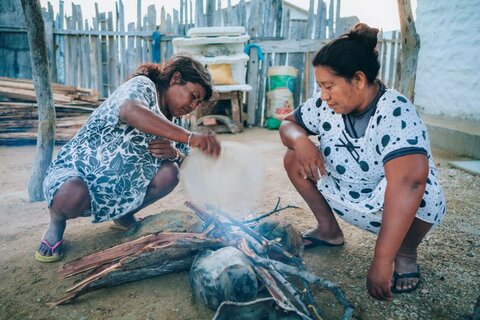
"Latin America has a history of colonialism and exclusion," says Pearce. "You couldn't understand Latin America without understanding how Indigenous people, Afro-Colombians and Afro-Latin Americans, have been impacted by that particular colonial history."
She adds: "It's interesting to note that the whiter you are, often you are also part of the wealthier and more politically powerful classes. So there is a kind of race issue with class as well.
"And of course, Latin America has always been a very gendered society."
The word ‘machismo', she says, is pegged to the region. So is ‘feminicide' — a word that draws attention to the fact that it's not just women being killed, "they're being killed because they're women".

According to the latest UN figures, a woman is killed every two hours in Latin America.
As lockdown increases the likelihood of women being trapped in abusive family relations, WFP in Ecuador is supporting a women's shelter which provides refuge to women — including migrants — who suffered domestic violence and their children. The shelter is also providing food to former guests who went on to rebuild their lives but have since lost their jobs, often in the informal economy, because of the pandemic.
Violence soaks Latin America's history. Guatemala, Honduras and El Salvador — the Northern Triangle countries — were caught up in varied ways in the wars of the 1980s, says Pearce. "You have long histories of intergenerational transmissions of violence with families who've lived the massacres of Indigenous populations and all who resisted the military-backed oligarchic regimes of the region."

In the Salvadoran capital San Salvador, WFP co-sponsors a programme, ConectArte, that offers cash assistance and artistic training to youth from marginalized backgrounds. The programme contributes to building a culture of peace, empowering youth and helping breed a new generation of community leaders.
Another WFP co-sponsored programme, Gastromotiva, provides six months of culinary training to young people in San Salvador looking to launch careers in food service. The programme is a rare opportunity for youth frustrated by the violence and lack of opportunities. It is particularly attractive to young Salvadorans deported back from the U.S. or other countries, most of whom speak better English than Spanish and find it difficult to integrate into a context where jobs are hard to come by.
‘I came home to El Salvador to work my land again and try to get my life back'
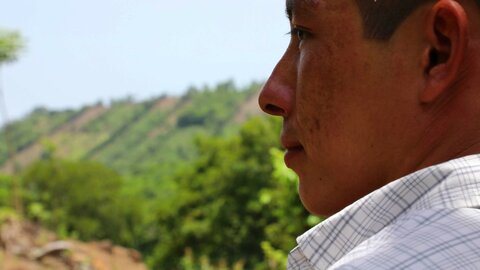
The region, which already "has a cauldron of problems", now faces the threat of COVID-19.
"While the pandemic hasn't hit the region to the extent it's hitting Europe," says Pearce, "it's on the horizon."
All the intimations are Latin American economies are going to be absolutely devastated, she adds, with untold consequences for food security. But none of this is new — in fact, the pandemic serves to highlight "continuities", she says.
"COVID in a sense, isn't an event, it's something that's kind of emerged in a context," says Pearce. "The fact that you have incredibly poor health services, extraordinary inequalities, economic models that have neglected if not ruined peasant agriculture, the levels of violence … it's extremely worrying."
Looking at things through the lens of context is paramount, she says.
"Distribution of wealth is so skewed that this is going to mean some really horrendous things for people on the ground".
Latin America is a pandora's box of complexity. To wrap up, the best I can do is ask Pearce how far she got with Narcos.
"I haven't got beyond the first series yet," she says. "So I kind of am thinking this is the time to do it."

